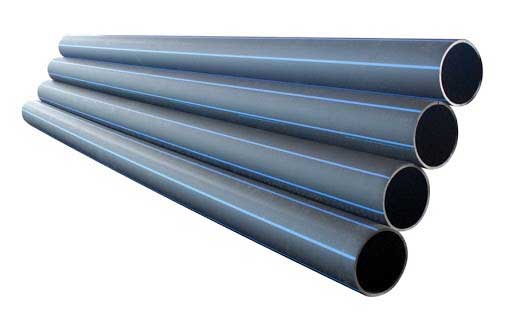Why Texas hdpe pipe manufacturer Is Dominating in Modern Infrastructure
Comprehending the Secret Perks of HDPE Pipeline for Water and Wastewater Management
Using HDPE pipe in water and wastewater management provides many benefits that merit factor to consider. Its extraordinary longevity and long lifespan make it a preferred option for numerous jobs. Furthermore, the product's resistance to deterioration and chemical damages improves its integrity in numerous settings. The benefits extend beyond just longevity and resistance. custom hdpe pipe manufacturing Midland TX. Exploring its cost-effectiveness and ecological effect exposes a lot more engaging factors for its prevalent fostering in modern-day infrastructure
Remarkable Resilience and Longevity

HDPE pipe stands out for its phenomenal longevity and long life, making it a recommended choice in water management systems. Created from high-density polyethylene, these pipelines can withstand substantial pressure and tension, making certain reputable performance gradually. Their durable nature permits them to sustain extreme ecological problems, consisting of temperature level fluctuations and dirt movements, which can cause other materials to fail.
The lifespan of HDPE pipes commonly exceeds 50 years, offering an affordable option for communities and sectors alike. In addition, the product's light-weight residential or commercial properties simplify setup, minimizing labor prices and timeframes. This toughness decreases the demand for frequent repairs or replacements, additionally boosting its financial appeal.
In water monitoring applications, the integrity of HDPE pipes implies less disturbances and boosted solution continuity, making them integral to sustainable infrastructure development. The combination of sturdiness and long life strengthens HDPE's function as a keystone in efficient water administration remedies.

Resistance to Corrosion and Chemical Damages
While many products catch rust and chemical damages in time, HDPE pipelines exhibit impressive resistance, making them optimal for different water management applications. This durability stems from the molecular framework of high-density polyethylene, which is inherently non-reactive and does not corrode like steels or weaken from direct exposure to rough chemicals. Consequently, HDPE is very reliable in settings with hostile materials, such as wastewater systems that may consist of acids, bases, and organic solvents.
Additionally, HDPE pipes can hold up against ecological elements such as dirt level of acidity and saline conditions, even more improving their suitability for varied applications (Midland TX HDPE Pipe Fittings in Stock). Their ability to maintain architectural integrity in time reduces the risk of leakages and failings, which is important in making sure the safety and security and dependability of water distribution and wastewater management systems. The resistance to deterioration and chemical damages noticeably adds to the overall effectiveness and long life of HDPE piping options.
Cost-Effectiveness and Economic Advantages
When thinking about the financial effects of water administration systems, the cost-effectiveness of HDPE pipelines comes to be obvious. These pipes provide lower installment and upkeep costs compared to traditional products like steel or concrete. Their lightweight nature simplifies transport and setup, resulting in reduced labor costs. Furthermore, HDPE pipes show a lengthy lifespan, typically going beyond half a century, which converts to less substitutes and lasting financial savings.
Moreover, the resistance of HDPE to deterioration and chemical damages decreases the demand for pricey fixings and substitutes. The pipelines likewise support efficient water flow, reducing power expenses related to pumping systems. By alleviating leaks and water loss, HDPE pipes contribute to substantial financial advantages for districts and markets alike. Generally, the preliminary investment in HDPE piping can yield significant monetary returns over the lifespan of the water management system, making it a sensible option for lasting framework growth.
Ecological Sustainability and Reduced Influence

Versatility and Adaptability in Setup
As a result of their distinct residential or commercial properties, HDPE pipelines offer impressive adaptability and flexibility in installment, making them suitable for a wide variety of applications. Their lightweight nature permits less complicated handling and transport, lowering labor costs and installment time. HDPE pipes can be bent and shaped to fit numerous surfaces and project needs, which is especially helpful in challenging settings.
Additionally, their resistance to deterioration and chemical damage permits installation in diverse setups without the requirement for specialized protective layers. The capacity to fuse joints produces a continuous, leak-free system, boosting the overall stability and reliability of the setup. HDPE's adaptability also fits ground activity, decreasing the danger of damages in areas vulnerable to shifting soil. On the whole, these qualities make HDPE pipelines not just flexible yet additionally a preferred option for water and wastewater monitoring systems.
Regularly Asked Questions
Exactly How Does HDPE Pipe Contrast to PVC in Water Monitoring Applications?
HDPE pipeline provides exceptional versatility, resistance to corrosion, and longevity compared to PVC. Its lighter weight promotes much easier installment, while its lengthy life-span reduces substitute prices, making HDPE a favored option in water administration applications.
What Is the Life Expectancy of HDPE Water Lines Under Normal Problems?
Under common conditions, HDPE pipes can have a life expectancy varying from 50 to 100 years. Their toughness and resistance to deterioration add to their lasting efficiency in different applications, making them a trusted selection for framework.
Are HDPE Piping Recyclable After Their Solution Life?
Yes, HDPE pipes are recyclable after their service life. Texas hdpe pipe manufacturer. They can be processed read more and repurposed into brand-new items, considerably minimizing environmental influence and advertising sustainability within the market, making them a green option for piping services
What Is the Installation Process for HDPE Piping?
The setup process for HDPE pipelines includes site prep work, trenching, pipe fusion or mechanical signing up with, backfilling, and pressure testing. Proper strategies guarantee a sturdy and effective system for carrying water and wastewater efficiently.
Can HDPE Piping Be Utilized for Both Potable and Non-Potable Water Solutions?
Yes, HDPE pipes can be made use of for both drinkable and non-potable water supply. Their flexibility, resilience, and resistance to deterioration make them appropriate for numerous applications, guaranteeing secure and efficient transportation of water in various contexts.